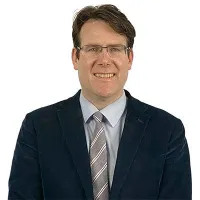Blogs

Transforming a Veteran's Life
On MedHeads
I chat with DR Andrew Rees about a particularly challenging case of a military veteran in his fifties who ahs been a victim of both a traumatic abusive childhood and combat trauma.
He suffers from chronic pain secondary to degenerative disease of both knees and spine (rather than combat trauma) and is dependent on high dose opioids (oxycontin 40 mg bd) and various benzodiazepines. He also suffers form PTS. In terms of his lifestyle, he is obese, he smokes twenty to thirty cigarettes per day. He lives with a partner and has a child from a previous relationship.
We discussed firstly what his needs might be according to the "SPEW CRAFT" mnemonic.
Sustenance – there do not seem to be any unmet needs in this domain
Protection.
His PTSD may indicate an unmet psychological need for protection.
Engagement with meaningful activities.
He does not engage in any meaningful activities; he has no hobbies or interests and self isolates for most of the time.
Wisdom - He may not know how to seek help, or for that matter that help is available
Creativity – there do not seem to be any unmet needs in this domain
Rest - He does not work, and as mentioned above he does not engage in any meaningful activities, but this does not mean he has rest. He does not have rest from psychological restlessness, and his diurnal rhythms are disturbed.
Freedom - He feels trapped and isolated and is not sure who his tribe is. There is a reluctance to engage with the local RSL for fear of exacerbating his PTSD.
Transcendence or Legacy.
He has no idea of his identity or his personal worth.
Starting from this apparently hopeless situation Dr Rees has been able to engage with this patient and help this patient grow by simply asking the right questions.
What does he hope for in life?
This man's quest for his purpose in life led him to realize that he wanted to re-establish his relationship with his daughter.
What is he good at, what would his spouse think he is good at, what would his daughter think he is good at?
He identified that his strengths included reliability, conscientiousness, and a sense of duty.
After understanding the answers to these questions then comes the miracle question.
"If all your problems magically disappeared overnight, what would it look like for you, what would it feel like for you and what would be the first sign that someone else would notice?"
In this case the answer was that he would smoke less, take less medication, and do more exercise.
The miracle question has unlocked in this patient the potential for deprescribing and a healthier lifestyle. Finding his purpose in life has shifted his focus from being dependent on medication and has unlocked his desire to be medication free, to enjoy mental clarity and to engage with his family.
Archimedes once said that with a big enough lever he could move the earth. Dr Rees has shown us a similarly profound effect: that with the right question we can unlock a willingness for change and a desire for a drug-free life.

